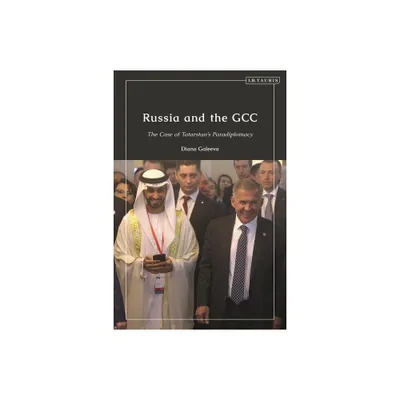Home
Russia and The GCC: Case of Tatarstan's Paradiplomacy
Loading Inventory...
Barnes and Noble
Russia and The GCC: Case of Tatarstan's Paradiplomacy
Current price: $115.00


Barnes and Noble
Russia and The GCC: Case of Tatarstan's Paradiplomacy
Current price: $115.00
Loading Inventory...
Size: Hardcover
*Product Information may vary - to confirm product availability, pricing, and additional information please contact Barnes and Noble
In recent decades Russia has played an increasingly active role in the Middle East as states within the region continue to diversify their relations with major external powers. Yet the role of specific Russian regions, especially those that share an 'Islamic identity' with the GCC has been overlooked.
In this book Diana Galeeva examines the relations between the Gulf States and Russia from the Soviet era to the present day. Using the Republic of Tatarstan, one of Russia's Muslim polities as a case study, Galeeva demonstrates the emergence of relations between modern Tatarstan and the GCC States, evolving from concerns with economic survival to a rising paradiplomacy reliant on shared Islamic identities.
Having conducted fieldwork in the Muslim Republics of Tatarstan, Bashkortostan and Dagestan, the book includes interviews with high-ranking political figures, heads of religious organisations and academics. Moving beyond solely economic and geopolitical considerations, the research in this book sheds light on the increasingly important role that culture and shared Islamic identity play in paradiplomacy efforts.
In this book Diana Galeeva examines the relations between the Gulf States and Russia from the Soviet era to the present day. Using the Republic of Tatarstan, one of Russia's Muslim polities as a case study, Galeeva demonstrates the emergence of relations between modern Tatarstan and the GCC States, evolving from concerns with economic survival to a rising paradiplomacy reliant on shared Islamic identities.
Having conducted fieldwork in the Muslim Republics of Tatarstan, Bashkortostan and Dagestan, the book includes interviews with high-ranking political figures, heads of religious organisations and academics. Moving beyond solely economic and geopolitical considerations, the research in this book sheds light on the increasingly important role that culture and shared Islamic identity play in paradiplomacy efforts.


















